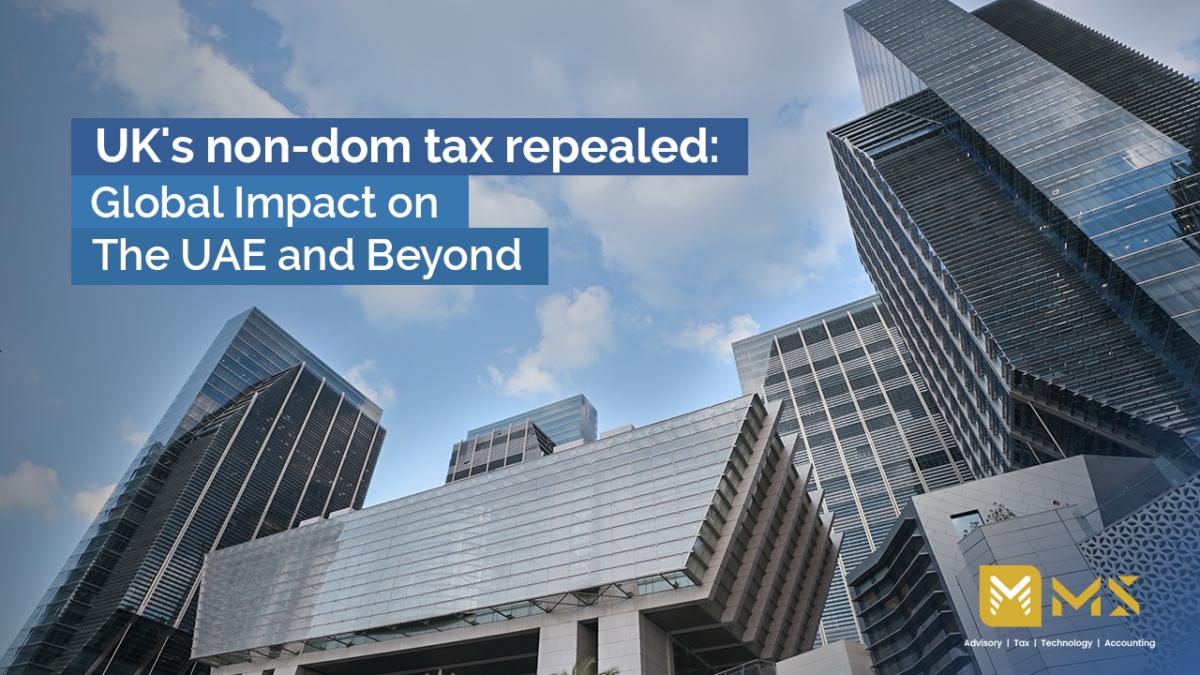Jeremy Hunt, United Kingdom’s chancellor of the Exchequer, shook up headlines with a game-changing move in the Spring Budget – waving goodbye to the non-domiciled tax regime in the UK and unveiling an exciting, revamped ‘tax holiday’ for those making the move to the kingdom. The significant transformation is likely to impact not just the UK tax system but also other tax-friendly nations, including Western European jurisdictions such as Greece, Malta, and Ireland, as well as countries in the MENA region.
Before that, let us journey through the story of the epic non-dom tax.
Tracing the history of non-dom tax in the UK
The origin of the non-dom tax regime can be traced back to the inception of income tax in 1799 when residents were solely taxed on income earned abroad if it was received within the country. This marked the introduction of the ‘remittance Basis’ of taxation, a concept that underwent modification in 1914, restricting eligibility to residents not domiciled or ordinarily resident in the UK. The ‘remittance Basis’ regime, utilized by non-domiciled individuals, has largely retained its core principles since the 1900s, with significant reforms in 2008 and 2017. Despite these changes, the fundamental principle persists that non-doms are only taxed on overseas income and capital gains to the extent that funds are brought into or used in the UK. Since 2017, non-domiciled individuals have had the option to elect for the remittance basis of taxation for 15 years. Beyond this period, they are treated as ‘deemed domiciled’ for tax purposes, and subjected to worldwide taxation. However, a non-dom can establish a non-UK trust before the 15-year term expires, theoretically exempting the trust from UK tax concerning non-UK sources. The concept that one’s domicile should determine their tax assessment is unusual. Domicile, inherited from one’s father at birth, is often considered an outdated and complex concept. In recent years, Her Majesty’s Revenue and Customs (HMRC) has increased inquiries to ascertain non-UK domicile status, revealing a degree of subjectivity in the assessment process.
But now the non-dom tax has been phased out and the recent changes have introduced new players into the game.
UAE’s attraction for global migrants: A boon amidst UK tax reforms
With its tax-friendly regime, the UAE is emerging as an irresistible destination for high-net-worth individuals (HNWIs), promising both fiscal efficiency and a top-notch quality of life. The UAE’s magnetic appeal is drawing UK millionaires and professionals with its blend of lower living costs, enticing salary benefits, economic stability, and global hi-tech prominence. Offering long-term residence visas, a high quality of life, and public safety, the UAE stands out as the ideal destination. Meanwhile, the UK grapples with a 50 percent surge in living costs, triggering an exodus of HNWIs. The Henley Private Wealth Migration Report 2023 predicts the loss of 3,200 more HNWIs in 2023, adding to the 12,500 already departed between 2017 and 2022.
Also, the UAE’s real estate sector is set to flourish, fuelled by UK nationals contributing 21.2 percent to international property transactions in 2023. As Abu Dhabi emerges as a bridge between East and West, UK entrepreneurs flock to set up businesses, injecting diverse investments into the thriving UAE economy. This shift signifies the UAE’s ascent as the top choice for migration, driven by economic growth, political stability, and abundant job opportunities. The existing English Common Law system of ADGM in Abu Dhabi can also be an add-on to the migrants for seamless shifts. The traditional allure of the UK, especially London, for migrating millionaires has waned in the face of Brexit and the declining importance of the London Stock Exchange. Being a solution for that, the UAE stands as a global financial hub, beckoning with unprecedented opportunities for these migrating individuals.
Crafting strategies in the face of changing tax landscapes
The impending non-dom tax changes hold substantial implications, particularly for clients in the MENA region, with a specific emphasis on the UAE. Individuals in the UAE and elsewhere should assess their UK residence intentions and seek professional advice to proactively plan for these tax adjustments. Keep in mind that these changes might continue to evolve, especially with the upcoming UK general election set before January 28, 2025, which precedes the implementation of most of these rules by April 2025.
